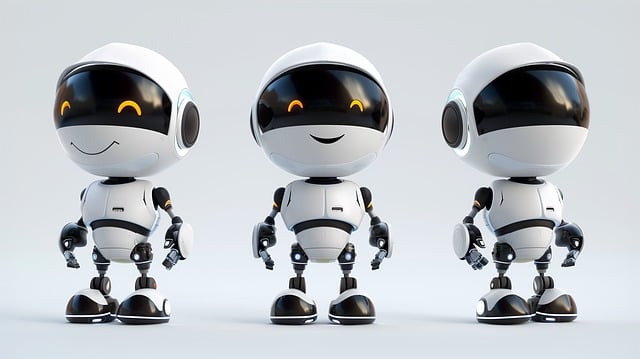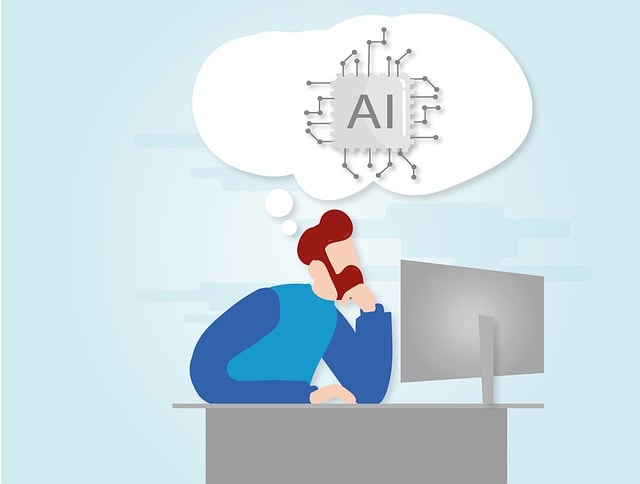AI chatbots are transforming business operations by providing 24/7 customer service, automating tasks, and enhancing user experiences. With capabilities like natural language processing, machine learning, and personalization, these digital assistants can handle complex queries, learn from interactions, and offer tailored recommendations. Businesses can integrate AI chatbots in areas like customer service, lead generation, or data collection to improve efficiency and engagement. Despite challenges in aligning with brand voice and values, continuous optimization ensures AI chatbots remain relevant and beneficial. Future advancements promise more strategic roles for AI chatbots, including predictive needs, personalized solutions, and data-driven decisions, revolutionizing business communication and operations.
“In today’s digital landscape, AI chatbots are transforming businesses across industries. This comprehensive guide, ‘Chatbots for Business’, offers a deep dive into the world of artificial intelligence-powered conversation agents. From understanding the fundamentals of AI chatbots to exploring their diverse applications and integration strategies, this article equips readers with insights on leveraging ochatbot technology. Discover the myriad benefits, navigate implementation challenges, and stay ahead with future trends shaping the evolution of AI chatbots in business.”
- Understanding AI Chatbots: A Comprehensive Overview
- Benefits of Implementing an AI Chatbot in Your Business
- Types of AI Chatbots and Their Applications
- Integrating AI Chatbots: Strategies and Best Practices
- Overcoming Challenges and Ensuring Effective Performance
- Future Trends: The Evolution of AI Chatbots in Business
Understanding AI Chatbots: A Comprehensive Overview

AI chatbots have revolutionized the way businesses interact with their customers, offering a convenient and efficient customer service experience. These intelligent virtual assistants leverage advanced natural language processing (NLP) and machine learning technologies to understand and respond to user queries in real time. An AI chatbot can handle a wide range of tasks, from answering frequently asked questions to assisting with sales and even managing scheduling.
Understanding the capabilities of an AI chatbot is crucial for businesses looking to integrate this technology. Modern chatbots are capable of processing complex queries, learning from user interactions, and adapting their responses over time. They can be tailored to fit specific business needs, whether it’s enhancing website navigation or providing personalized product recommendations. By automating routine tasks and offering 24/7 availability, AI chatbots free up human resources for more strategic initiatives, ultimately improving operational efficiency and customer satisfaction.
Benefits of Implementing an AI Chatbot in Your Business

Implementing an AI chatbot can significantly transform your business operations and customer engagement strategies. These advanced digital assistants offer a range of benefits that traditional customer service methods may struggle to match. With their ability to process natural language, learn from interactions, and provide instant responses, AI chatbots enhance user experiences and free up valuable time for human agents to focus on more complex tasks.
One of the key advantages is their round-the-clock availability; they can handle countless customer inquiries simultaneously, ensuring prompt support and reducing wait times. Moreover, AI chatbots are highly customizable, allowing businesses to integrate them seamlessly into existing workflows and systems. They can be trained to understand industry-specific terminology, providing accurate and contextually relevant answers. This level of personalization improves customer satisfaction and fosters a more efficient and effective business environment.
Types of AI Chatbots and Their Applications

AI chatbots have evolved to serve a variety of purposes across different industries. There are three main types: rule-based, machine learning (ML), and hybrid AI chatbots. Rule-based ochatbots rely on pre-programmed responses to specific user inputs, making them suitable for simple tasks like customer service inquiries or providing basic product information. ML chatbots, on the other hand, use algorithms to learn from user interactions, allowing them to understand and generate more natural language responses over time.
Hybrid AI chatbots combine both rule-based and machine learning capabilities, leveraging the strengths of each. They can handle complex queries by first using rules for straightforward requests and then transitioning to ML for deeper conversations. This versatility makes hybrid chatbots ideal for businesses seeking to improve customer engagement, automate repetitive tasks, or even provide personalized recommendations based on user behavior.
Integrating AI Chatbots: Strategies and Best Practices

Integrating AI chatbots into your business operations can seem daunting, but with a well-thought-out strategy, it becomes a powerful tool for enhancing customer engagement and streamlining processes. Start by identifying specific areas where an AI chatbot could provide value, such as customer service, lead generation, or data collection. These virtual assistants excel at handling repetitive tasks, providing quick answers to common queries, and collecting user information, allowing human agents to focus on more complex issues.
When implementing an AI chatbot, consider the user experience. Design conversations that feel natural and intuitive, ensuring the chatbot understands a variety of user inputs. Regularly update and train your chatbot with new data and feedback to improve its performance over time. Additionally, maintain transparency about the interaction being with a machine, setting realistic expectations for users. This best practice fosters trust and ensures customers know they’re interacting with an AI chatbot, enhancing their overall experience.
Overcoming Challenges and Ensuring Effective Performance

Implementing AI chatbots in a business setting comes with its own set of challenges. One of the primary hurdles is ensuring the chatbot aligns with the brand’s voice and values, providing an authentic user experience. Businesses must invest time in training and refining their AI models to avoid generic or incorrect responses, which can negatively impact customer satisfaction. Customization is key; tailoring the chatbot’s capabilities to specific business needs ensures it becomes a powerful tool rather than a mere accessory.
To guarantee effective performance, continuous monitoring and optimization are crucial. Regularly updating the chatbot with new information and adapting to changing industry trends ensure its relevance. Additionally, integrating feedback loops allows for constant improvement based on user interactions. This iterative process helps businesses harness the full potential of AI chatbots, enhancing customer engagement and streamlining operations in the digital age.
Future Trends: The Evolution of AI Chatbots in Business

The future of AI chatbots in business is poised for significant evolution, driven by advancements in natural language processing (NLP) and machine learning algorithms. As technology continues to refine itself, AI chatbots will become increasingly sophisticated, capable of handling complex tasks that require a deeper understanding of human context and intent. They’ll move beyond simple question-answering roles, evolving into strategic business partners that can anticipate needs, offer personalized recommendations, and even make data-driven decisions.
With the integration of advanced analytics, AI chatbots will gain valuable insights from customer interactions, enabling businesses to optimize their operations and deliver tailored experiences. Moreover, the rise of conversational AI will reshape how companies engage with their customers, employees, and partners, fostering seamless communication channels that enhance productivity, efficiency, and overall customer satisfaction.
AI chatbots have emerged as powerful tools for businesses seeking to enhance customer service, streamline operations, and boost efficiency. By understanding the different types, their diverse applications, and implementing best practices for integration, companies can unlock significant benefits. Overcoming challenges through strategic planning ensures optimal performance, while staying attuned to future trends will enable businesses to harness the evolving potential of AI chatbots. These digital assistants are set to play an increasingly vital role in shaping the business landscape, revolutionizing interactions, and driving success in today’s competitive market.
